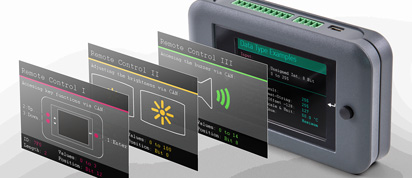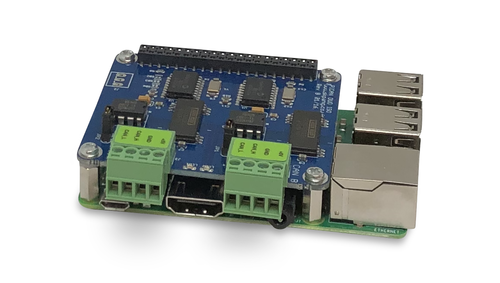Recent Posts
TFT Mini Display For Visualization And Recording Of CAN Bus Data
Posted by on
The PCAN-MiniDisplay by PEAK System is a human-machine interface (HMI)for the visualization of CAN Bus data. It comes with two High-speed CAN connectors to connect to the CAN Bus network. The graphical representation of received CAN Bus data is configured before utilizing the unit and prepared for display on its TFT display.
The PCAN-MiniDisplay can alternatively operate as a data logging device. The data traffic is recorded to a memory card and can be replayed or analyzed on a PC for later processing.
In addition to the built-in PCAN-MiniDisplay, there is a version in a plastic enclosure with push buttons to create and evaluate application-specific configurations. Furthermore, the user can switch between different settings during operation.
Specifications
- CAN connections via two High-speed CAN channels (ISO 11898-2)
- 2 analog inputs
- Resolution 10 bit
- TFT display with 320 x 240 pixel resolution
- Freely configurable visualization of CAN data via text files
- Slot for microSD memory card (max. 32 GByte)
- High-speed USB 2.0 port for access to the memory card using a PC
- Running configurations from the memory card
- Optional auto-start of a single configuration or recording on power-up
- Recording of incoming CAN messages to the internal memory card, optionally including occurring errors
- CAN ID filtering for recordings, separately configurable for each CAN channel
- Conversion of recordings to various output formats using Windows software
- Playback of a recording with optional loop function
- Use of optionally equipped push buttons for menu navigation and to switch between multiple display configurations
- Dimensions: 80 x 55 mm
- Voltage supply from 7 to 30 V
- Operating temperature range from -20 to 70 °C (-4 to 158 °F)
Raspberry Pi 3 B+ System With Dual Isolated CAN Bus Interface
Our Raspberry Pi 3 System With CAN Bus Interface (PiCAN2) comes with a pre-installed Raspbian operating system.
High noise levels on a CAN bus network have the potential to destroy CAN bus transceivers. This noise originates mainly from two sources, ground loops and electrical line surges. Protecting a network against this destructive energy requires the galvanic isolation of the CAN bus system from other local node circuitry.
The PiCAN2 DUO ISO board provides two independent isolated CAN-Bus channels for the Raspberry Pi. It uses the Microchip MCP2515 CAN controller in combination with the Texas Instruments ISO1050 isolated CAN transceiver. Connections are made via 4 way screw terminal plugs.
There is an easy-to-install SocketCAN driver, and programming can be accomplished in C or Python.
 Loading... Please wait...
Loading... Please wait...


